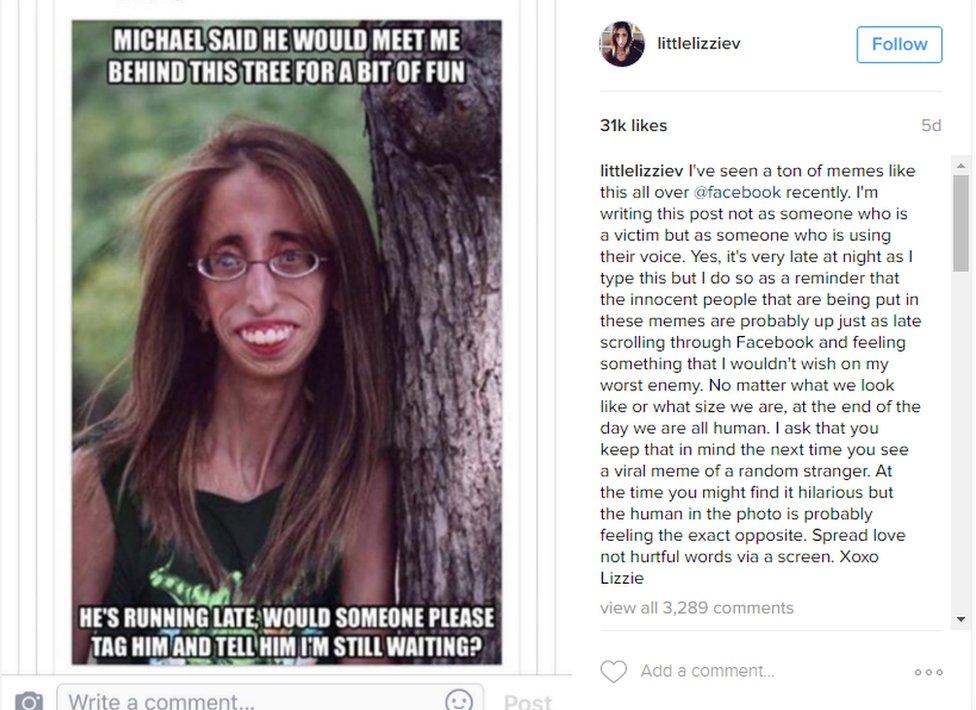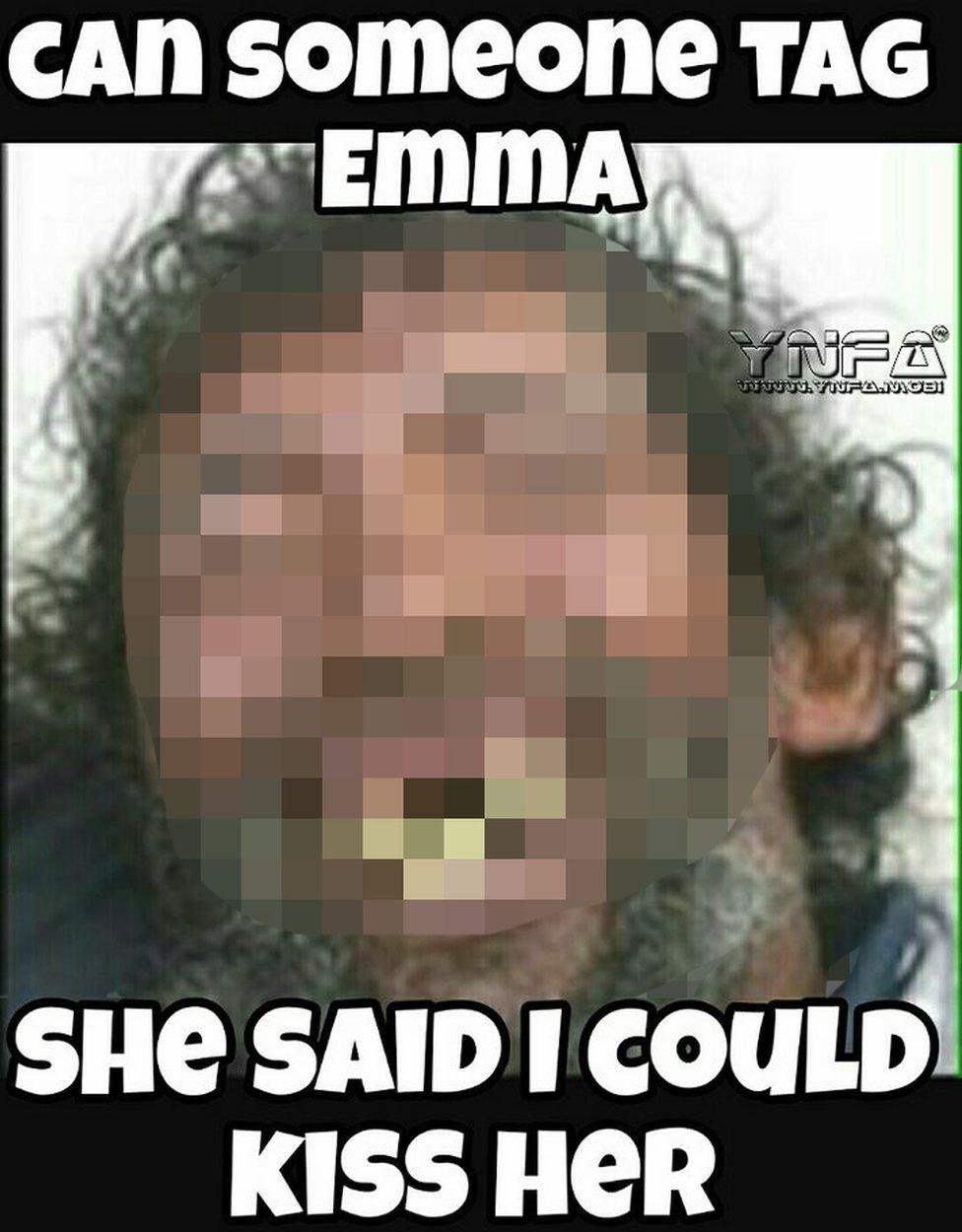The people who make body-shaming memes
- Published

A growing online backlash has been building against "tag a mate" memes on social media.
Usually sexually suggestive and, critics say, promoting body-shaming, such memes nonetheless continue to be shared in their hundreds of thousands.
Last week, Lizzie Velasquez, a motivational speaker and writer from the US whose image has been widely circulated online, described how hurtful it can be to be the unwitting butt of an internet "joke" which denigrates you on the basis of your appearance.
We wanted to understand what motivates people to make these memes, and whether they thought about the people they could be hurting.

Lizzie Velasquez spoke out on Instagram against "tag a mate" memes
These memes can quickly become viral.
Users are encouraged to tag their friends in the image, poking fun at their mates and, crucially, increasing the post's reach and engagement.
But many people feel that the joke is really at the expense of the people featured in the images.
The idea is that these people are so incredibly unattractive that no one could find them sexually appealing.
Facebook pages like the Asylum have attracted huge numbers of likes and followers sharing "funny, shocking and weird" content online.
At the time of writing, posts on the Asylum's timeline include an assortment of juvenile humour: a dog defecating on its owner, a drunk failing miserably to withdraw some money and a selection of "tag a mate" memes.

"Tag a mate" memes like the above, posted on the Asylum Facebook page, have been attracting thousands of shares on social media. The BBC has pixelated the image to protect the person's identity.
The Asylum page is far from the only, or even the most prolific, publisher of these memes.
Huge numbers of similar pages exist and there are many pages which publish other sorts of damaging content.
In an email exchange with the BBC, a representative of the group which runs the page said that they had been posting these types of memes only for the last week and that they constituted a small proportion of their overall output.
"Other pages have used people with known illnesses or serious conditions, which quite frankly is sick," he said.
"All the pictures the team on our Asylum site have used are... readily available in the public domain through the Google public image library.
"In several cases, we have used pictures the people in the photos have sent us because they want to get known," he added.
The representative declined to respond to a request to comment on the steps they take to verify that the photos they receive belong to the people who send them in.
He said that anyone who wanted their photo removed from their page could simply get in touch.
"Facebook and all social media pages are full of things that are totally unacceptable, from pages mocking Madeleine McCann, pages mocking the dead, to pages promoting violence and so on," he explained.
"Our pages are properly run by our teams."
'A bit of fun?'
The Facebook page Funny Rugby League is another which has posted "tag a mate" memes in among the "rugby league banter" the account is built around.
One particular meme, featuring a plus-size woman with a crude caption, has been shared almost 170,000 times.
"I only posted mine as a bit of fun," the page administrator wrote in a Facebook message.
"I posted mine to maybe get a few extra likes on my page. But one photo has been seen by over 32 million people.
"In the long run I will be planning on making some money out of the page. I'm not sure how yet," he added.
'Disgusting behaviour'
But many people do not see the funny side and have reacted strongly against what they see as bullying and body-shaming.
"Disgusting behaviour from you all," wrote one Facebook user.
"This is a human being who is physically different that your are mocking."
Another wrote: "This woman obviously feels confident in her body and all this body-shaming is probably dropping her confidence down the drain."
Pages that publish the content, with sizeable numbers of followers and likes, clearly bear some of the responsibility.
But without the explicit complicity of their audience, the memes would not have the reach that they do.
Facebook users can report inappropriate content, and Facebook says that posts which contravene the community guidelines are removed.
It also says criminal content is proactively policed, while users can submit privacy claims to report photos or videos that they believe violate their privacy rights.
But ultimately Facebook relies on its users to report offensive content.
"No matter what we look like or what size we are," Lizzie Velasquez, who was born with a rare disease that prevents her from gaining weight, wrote on Instagram, external. "At the end of the day we are all human.
"I ask that you keep that in mind the next time you see a viral meme of a random stranger.
"At the time you might find it hilarious but the human in the photo is probably feeling the opposite," she added.
By Chris Bell, UGC and Social News